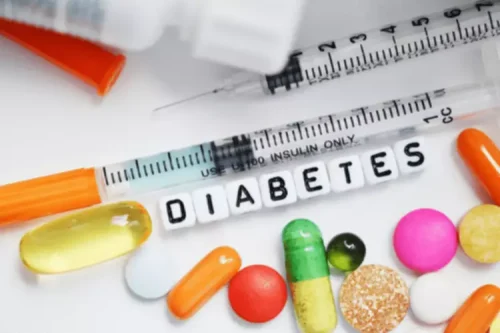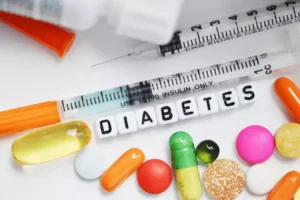The Hidden Cause of Your Brain Fog

Korsakoff psychosis, also called Korsakoff syndrome, is the late stage of Wernicke-Korsakoff syndrome. https://ecosoberhouse.com/ This stage of wet brain results in permanent brain damage that cannot be treated. While Korsakoff psychosis is less likely to cause a coma or death than Wernicke encephalopathy, it is a form of brain damage that will normally require someone to be constantly taken care of.
Factors That Increase the Risk for Wet Brain
Read on to explore the 7 warning signs of brain fog that you should not ignore. Up to 80% of those who survive the first stage of wet brain will go on to develop the symptoms of Korsakoff’s psychosis. The enzymes that turn thiamine into an active compound the body can use are preventing from working when someone consumes large amounts of alcohol. Replacing thiamine will stop the progression of wet brain and reverse symptoms caused by its early stage. Stopping alcohol use will prevent wet brain from developing again or progressing further if it is already permanent. In drug addiction treatment severe cases, wet brain can lead to death in about 10–15% of cases.

What is mush brain? Unraveling the mental mystery
From struggling to remember important details to making careless mistakes at work, the consequences of cognitive cloudiness can ripple through various aspects of our lives. It’s like trying to navigate a complex maze while wearing foggy goggles—frustrating, disorienting, and potentially hazardous. Ben had approached him first, and it’s not like they took things slow. He had been too blinded by the simple joy of ‘having a boyfriend’ to really look into Ben, which was entirely his own fault, in retrospect.

Supratentorial Brain: Anatomy, Function, and Clinical Significance
- It’s not its own diagnosis but a symptom of an underlying medical condition.
- Supplementing with thiamine can help individuals who have an alcohol addiction reduce the risk of developing Wernicke’s syndrome and Korsakoff syndrome.
- Someone struggling with a wet brain may not be able to recognize their symptoms clearly or seek medical advice when they should.
- When a person is suffering from addiction combined with things like depression, it can be even harder for him or her to overcome substance abuse.
- If treatment is not conducted at this stage, or it is and the patient resumes alcoholic drinking, Wernicke encephalopathy can progress to Korsakoff psychosis, a fatal condition.
- At The Recovery Village at Palmer Lake, we understand how stressful overcoming an alcohol addiction can be.
However, once a person is in the end stages of wet brain, or once it has developed into Korsakoff’s psychosis, the damage done to the brain is not reversible. In the early stages of wet brain, Wernicke’s encephalopathy can be reversible with thiamine injections and ending the use of alcohol. Often, when a person doesn’t receive treatment for wet brain, Wernicke’s disease can develop into Korsakoff’s psychosis. The first stage of wet brain is Wernicke’s encephalopathy, followed by Korsakoff’s psychosis. A person with wet brain syndrome often experiences memory loss and may become forgetful or seem confused and disoriented. Wernicke-Korsakoff (WK) syndrome involves two brain disorders that most commonly occur together, which are Wernicke’s encephalopathy and Korsakoff’s psychosis.

For heavy drinkers, these seemingly innocent memory lapses can evolve to slurred speech, an unsteady walk, violent muscle twitches or hallucinations, signaling alcohol-induced brain damage. If left untreated, the damage can progress to Wernicke-Korsakoff syndrome, a potentially life-threatening condition. Not all alcoholics get dementia, however, excessive alcohol consumption can impact the brain and may put a person at a higher risk of developing dementia. It is important to remember that treatment for wet brain is not a one-size-fits-all. Your doctor will order tests to check your thiamine levels when attempting to diagnose wet brain. They might also check for signs of alcohol use disorder which is the leading cause of wet brain.
Every part of the body needs thiamine to function, with some bodily systems using more of the vitamin than others. There are enzymes in the brain that need thiamine, including several critical neurotransmitters. When someone doesn’t get enough thiamine over a long period of time, they will develop brain damage or wet brain. As a result of this isolation, many people who suffer from alcohol abuse develop depression, anxiety, and other disorders and emotional struggles. When a person is suffering from addiction combined with things like depression, it can be even harder for him or her to overcome substance abuse. Fortunately, when an alcoholic wet brain is still in this first stage, it is treatable if addressed immediately with intravenous thiamine.
Talking about it certainly helped, but he still didn’t really have a grasp on what was happening. He didn’t understand how he could’ve been so blissfully unaware of his own feelings for however long this had been happening. He’d always felt his emotions clearly, even the bad ones, particularly when the bullying had first started. He knows he was feeling everything then, he still had the proof of how bad things had been. He didn’t have the chance to prepare himself for this ridiculous amount of feelings. He not only hadn’t realized he liked Nick, he what is mush brain also hadn’t realized just how much he liked Nick.
- The 42nd president was admitted to hospital on Monday for tests and observation after developing a fever.
- We’ve had a lot of Nick POV so I wanted to make Charlie more clear.
- Wernicke-Korsakoff syndrome (WKS), sometimes called wet brain, is a brain disorder caused by a severe lack of vitamin B1 (thiamine).
In addition to the RF, dreaming involves the limbic system, often referred to as the emotional brain. Areas of the visual cortex responsible for recognizing complex visual scenes as well as the anterior cingulate gyrus, which governs attention and motivation, are also active during REM sleep. Currently scientists are able to probe human brain activity in several ways.
What causes brain fog?

If you’re finding it hard to focus, feel a bit low and have a memory like a sieve, chances are you need a break – a screen break. And all that doom-scrolling, scouring negative news stories online or on apps, is clearly doing no favours for our health. Several of these studies have shown that years of abstaining from booze can allow brain regions to return to their original volume and can repair neural connections across different regions.
- Wernicke-Korsakoff (WK) syndrome involves two brain disorders that most commonly occur together, which are Wernicke’s encephalopathy and Korsakoff’s psychosis.
- This is because men are more likely to be diagnosed with alcohol use disorder, the leading cause of wet brain.
- But, if you are dedicated and committed to improving your life through recovery, you can overcome substance misuse for good.
Wet Brain: Essential Guide to Wernicke-Korsakoff Syndrome
The symptoms of WK syndrome can take a few days to weeks to develop. Confabulation, sometimes called “honest lying,” is a neuropsychiatric disorder in which an individual creates a false memory without intending to be deceitful. The main symptoms of Korsakoff’s syndrome include confusion and memory problems. If you or someone you love is exhibiting any of the above symptoms, it’s vital to immediately contact emergency health services or your healthcare provider. The sooner you can recognize symptoms and receive appropriate treatment, the sooner you can stop the progression of the syndrome and greatly lower your chances of experiencing irreversible side effects. The key to treating wet brain is to receive treatment as soon as possible.









